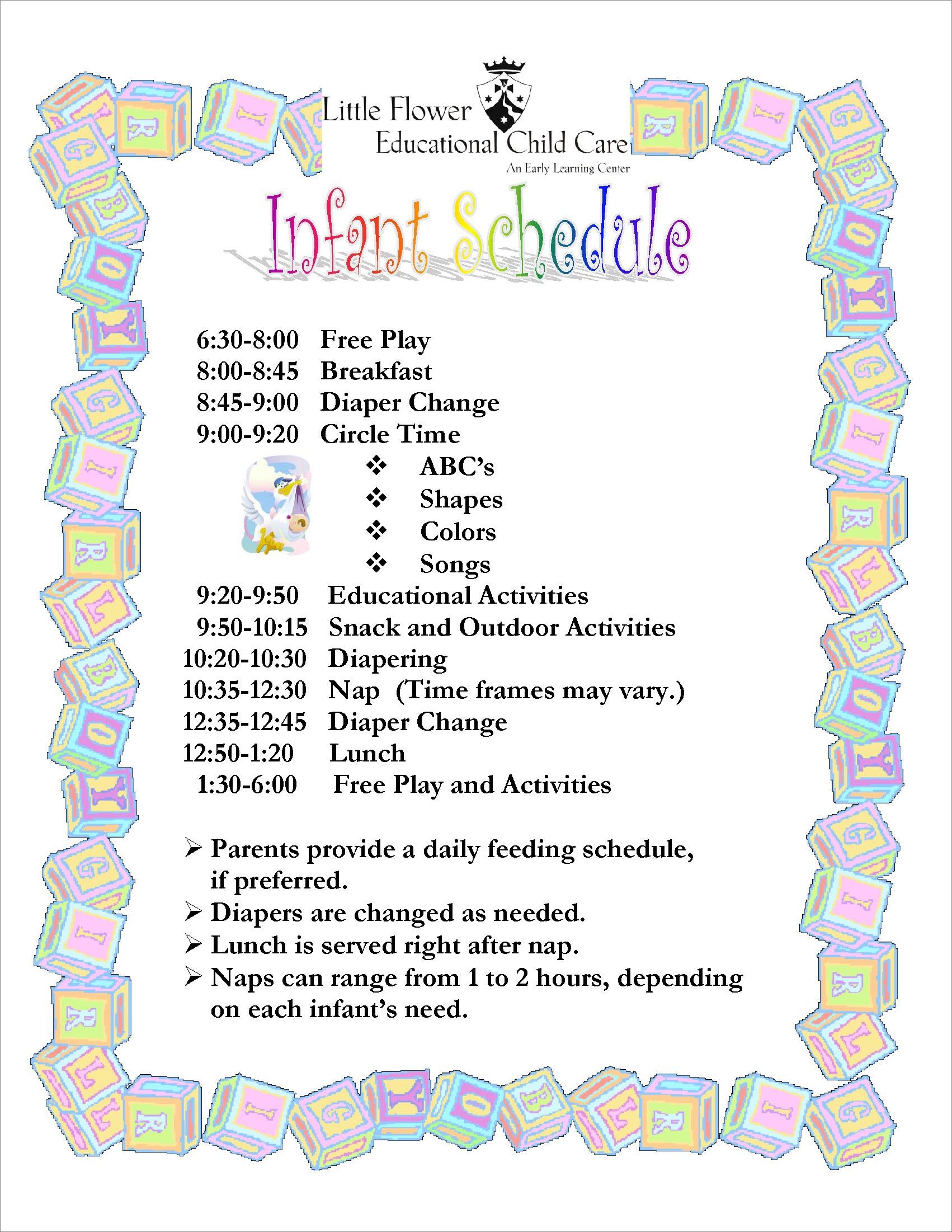When it comes to caring for an infant, establishing a daily schedule can provide structure and predictability for both the baby and the caregiver. Having a consistent routine can help infants feel secure and can also make it easier for parents to manage their own time.
In this guide, we will explore the importance of an infant’s daily schedule and provide tips on how to create one that works for you and your baby.
Why is an Infant Daily Schedule Important?
An infant’s daily schedule is important for several reasons. First and foremost, it helps infants develop a sense of security and stability. Babies thrive on routine, and knowing what to expect can help them feel more comfortable and less anxious. Additionally, having a schedule can make life easier for parents and caregivers. It provides a framework for planning and ensures that all of the baby’s needs are met throughout the day. Finally, a daily schedule can help establish healthy sleep patterns for infants, which is crucial for their overall well-being.
How to Create an Infant Daily Schedule
Creating an infant’s daily schedule may seem overwhelming at first, but with a little planning and flexibility, it can be a smooth process. Here are some steps to help you get started:
1. Observe Your Baby
Before you can create a schedule, it’s important to observe your baby’s natural rhythms and patterns. Pay attention to when they are most alert when they seem to get tired, and when they typically eat. This will give you a good starting point for structuring your daily routine.
2. Establish a Morning Routine
Start by establishing a consistent morning routine for your baby. This can include activities such as feeding, changing diapers, and engaging in playtime. Having a predictable morning routine can help set the tone for the rest of the day.
3. Plan for Nap Times
Nap times are crucial for an infant’s development and well-being. Make sure to incorporate regular nap times into your baby’s daily schedule. Pay attention to your baby’s sleep cues and create a calm and soothing environment to help them fall asleep.
4. Schedule Feeding Times
Feeding times are another important aspect of an infant’s daily schedule. Whether you are breastfeeding or using formula, make sure to establish regular feeding times throughout the day. This will help your baby develop a healthy eating routine and ensure that they are getting the nourishment they need.
5. Include Playtime and Interactive Activities
Infants thrive on stimulation and interaction. Make sure to include dedicated playtime and interactive activities in your baby’s daily schedule. This can include things like tummy time, reading books, singing songs, or playing with toys. These activities not only promote development but also provide opportunities for bonding.
6. Establish a Bedtime Routine
A consistent bedtime routine is essential for helping your baby develop healthy sleep habits. Establish a calming and predictable routine that includes activities such as bathing, reading a bedtime story, and soothing activities before putting your baby to bed.
7. Be Flexible
While having a schedule is important, it’s also essential to be flexible. Babies are unpredictable, and their needs may change from day to day. Be open to adjusting the schedule as needed and trust your instincts as a parent.
Sample Infant Daily Schedule
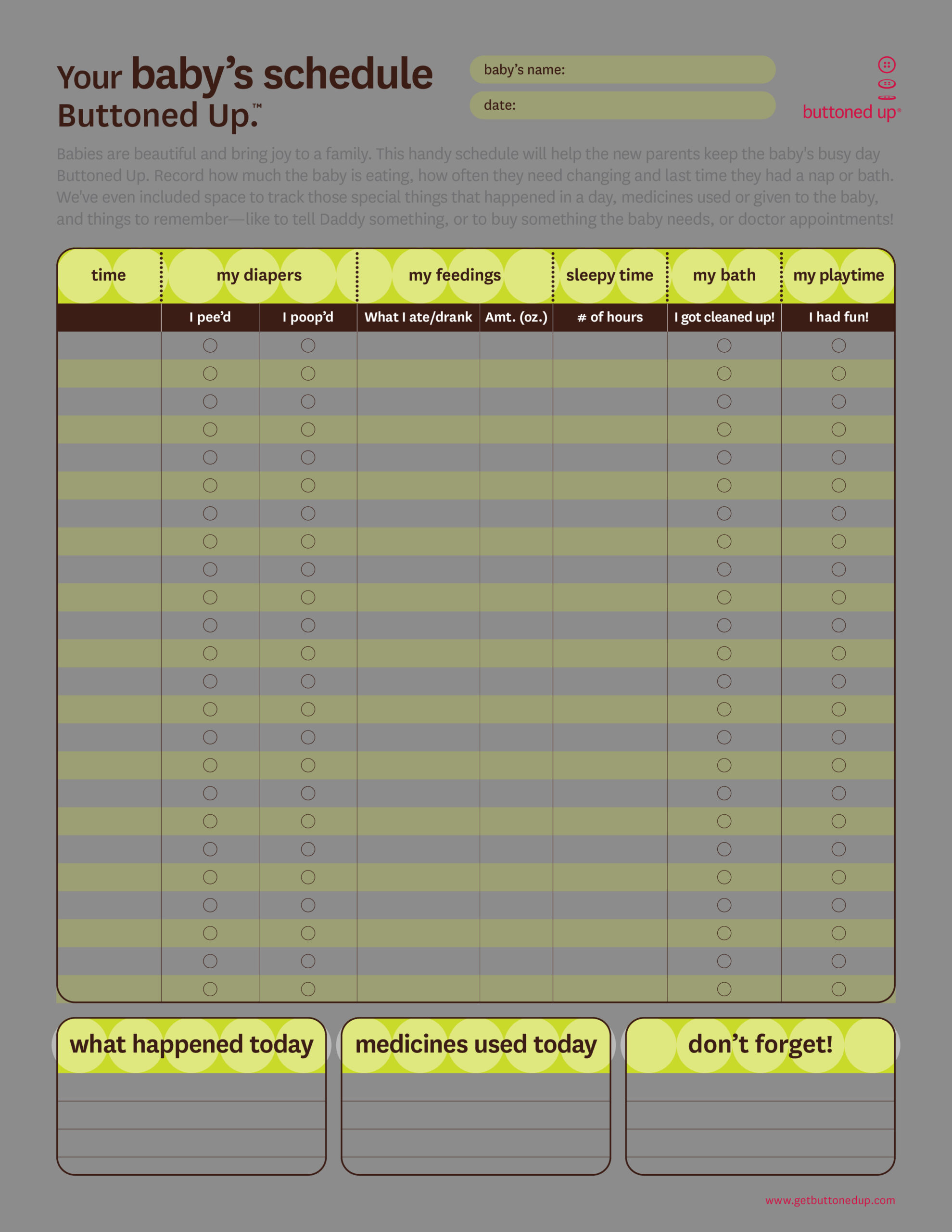
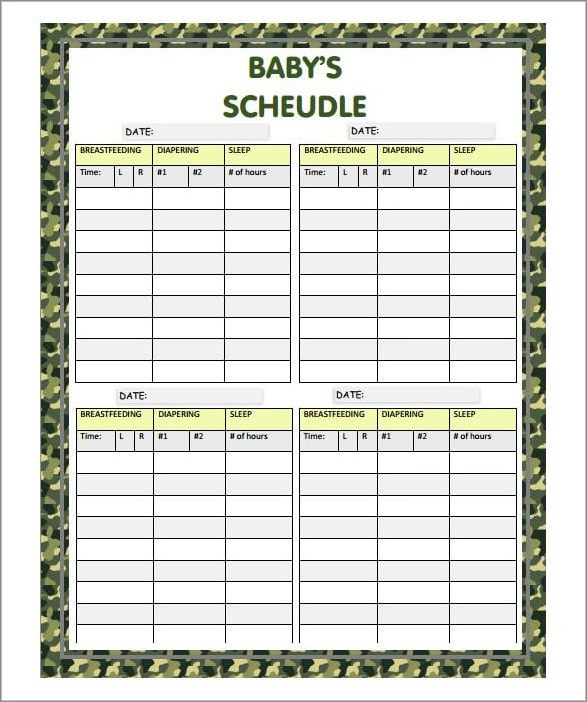
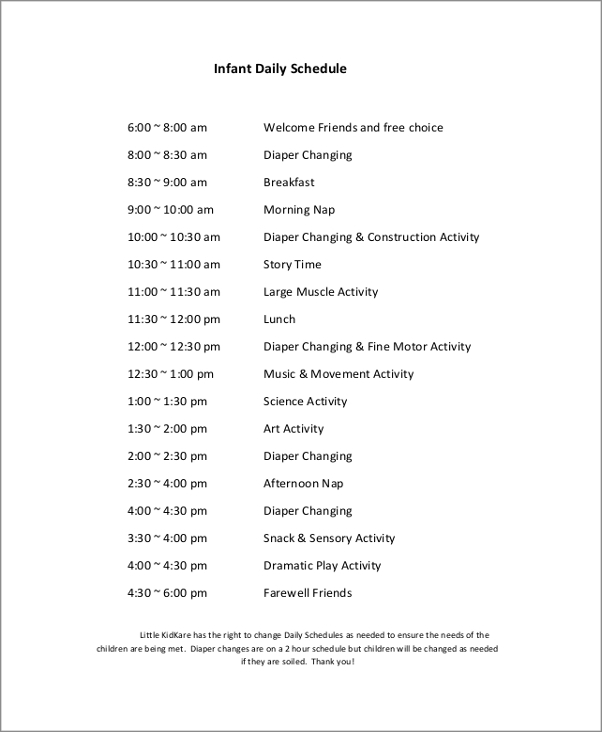
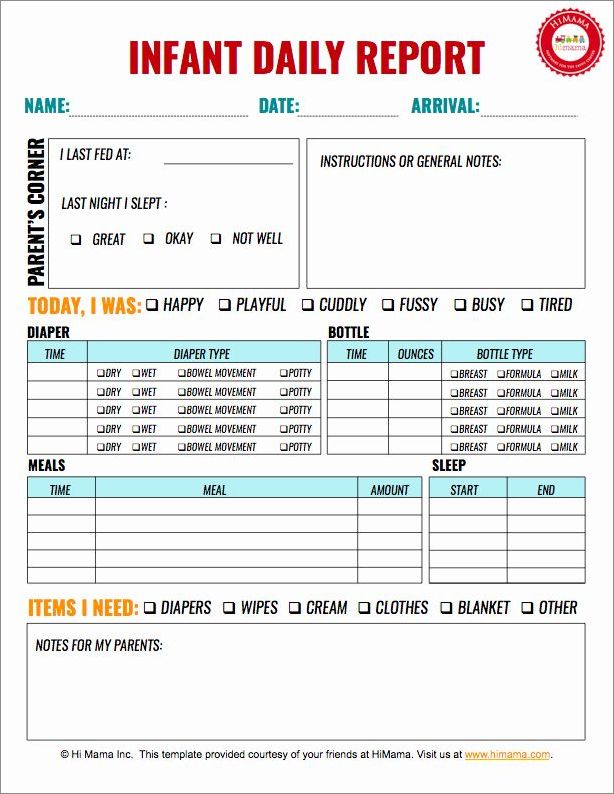
Here is an example of a sample infant daily schedule that you can use as a starting point:
- 7:00 am. Wake up, change diaper, and feed
- 8:00 am. Playtime and interactive activities
- 9:00 am. Nap time
- 11:00 am. Wake up and feed
- 12:00 pm. Tummy time and playtime
- 1:00 pm. Nap time
- 3:00 pm. Wake up and feed
- 4:00 pm. Outdoor time or sensory play
- 5:00 pm. Naptime
- 7:00 pm. Wake up, bath time, and feed
- 8:00 pm. Bedtime routine
- 8:30 pm. Bedtime
Tips for Success
Creating an infant’s daily schedule may require some trial and error, but here are a few tips to help you along the way:
- Be consistent: Stick to the schedule as closely as possible to establish a routine.
- Listen to your baby: Pay attention to your baby’s cues and adjust the schedule as needed.
- Allow for flexibility: Be open to making changes and adjustments when necessary.
- Involve your partner: Share the responsibilities of following the daily schedule with your partner to ensure consistency.
- Take care of yourself: Remember to prioritize your self-care and rest whenever possible.
- Seek support: Don’t hesitate to reach out to friends, family, or support groups for advice and guidance.
By creating an infant daily schedule, you can provide structure and routine for your baby while also making life easier for yourself as a caregiver. Remember to be flexible and adjust the schedule as needed to meet the ever-changing needs of your growing baby.
Infant Daily Schedule Template Word – Download
